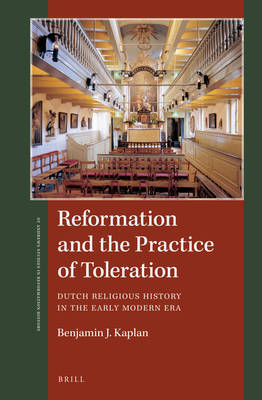
- Afhalen na 1 uur in een winkel met voorraad
- Gratis thuislevering in België vanaf € 30
- Ruim aanbod met 7 miljoen producten
- Afhalen na 1 uur in een winkel met voorraad
- Gratis thuislevering in België vanaf € 30
- Ruim aanbod met 7 miljoen producten
Zoeken
Reformation and the Practice of Toleration
Dutch Religious History in the Early Modern Era
Benjamin J Kaplan
€ 243,95
+ 487 punten
Omschrijving
The Dutch Republic was the most religiously diverse land in early modern Europe, gaining an international reputation for toleration. In Reformation and the Practice of Toleration, Benjamin Kaplan explains why the Protestant Reformation had this outcome in the Netherlands and how people of different faiths managed subsequently to live together peacefully. Bringing together fourteen essays by the author, the book examines the opposition of so-called Libertines to the aspirations of Calvinist reformers for uniformity and discipline. It analyzes the practical arrangements by which multiple religious groups were accommodated. It traces the dynamics of religious life in Utrecht and other mixed communities. And it explores the relationships that developed between people of different faiths, especially in 'mixed' marriages.
Specificaties
Betrokkenen
- Auteur(s):
- Uitgeverij:
Inhoud
- Aantal bladzijden:
- 384
- Taal:
- Engels
- Reeks:
- Reeksnummer:
- nr. 17
Eigenschappen
- Productcode (EAN):
- 9789004353947
- Verschijningsdatum:
- 19/09/2019
- Uitvoering:
- Hardcover
- Formaat:
- Genaaid
- Afmetingen:
- 157 mm x 236 mm
- Gewicht:
- 748 g

Alleen bij Standaard Boekhandel
+ 487 punten op je klantenkaart van Standaard Boekhandel
Beoordelingen
We publiceren alleen reviews die voldoen aan de voorwaarden voor reviews. Bekijk onze voorwaarden voor reviews.








